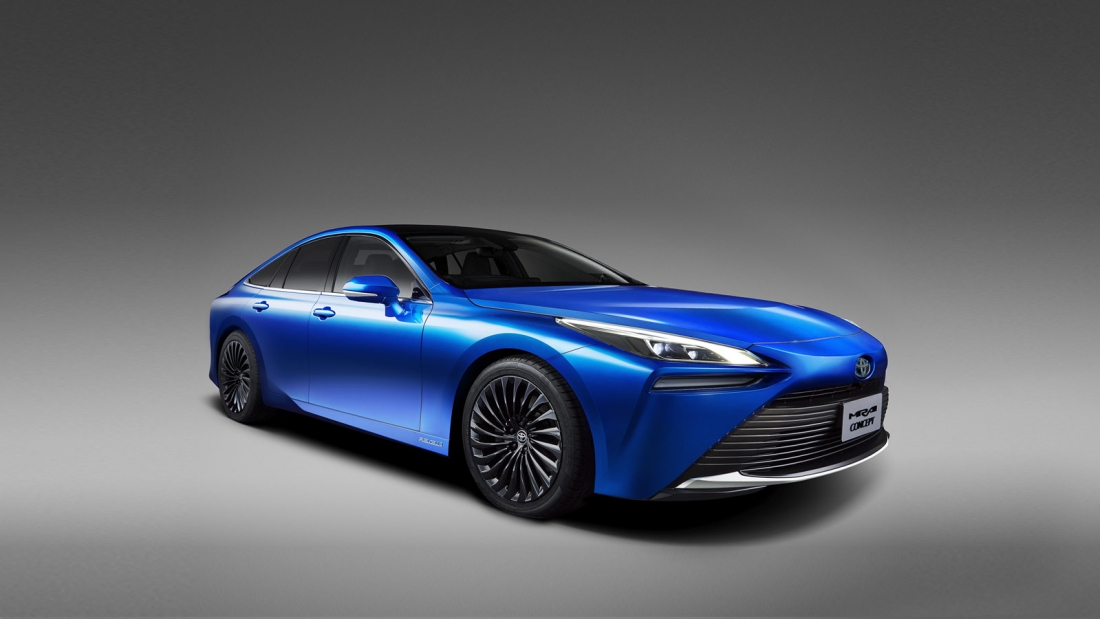EVs still dominate the alternative market
Toyota recently announced that it sold 2,629 of its Hydrogen powered Toyota Mirai in 2021, up 427% from 2020 and 75% from 2019. This is all while the state of Commiefornia added no new hydrogen stations in 2021, keeping their amount of stations at 48, which totals to about 256 hydrogen cell cars per station. That is compared to the more than 308,000 electric cars sold by Tesla in just Q4 of 2021, and the more than 4,000 charging stations added in the year.
If you don’t know what a hydrogen powered car or fuel cell vehicle is, then don’t worry, because they’ve been sold and marketed like dogshit. California is still the only state in the country to have any stations, dealerships or market for fuel cell vehicles. Back in 2015, Toyota launched the Mirai for sale in the US, being the second commercially available hydrogen car in the country.
Hydrogen fuel cells work almost like your regular everyday alkaline battery; hydrogen and oxygen are combined and react across an electrochemical cell, which produces electricity, some heat, and water. These cells are stacked, their power is sent through a converter, and that is delivered to an electric motor similar to fully electric vehicles. The process is almost entirely clean, and in the future, manufacturers aim to have the electrolytic separation of hydrogen and oxygen take place entirely within the vehicle. This would mean to fill up your car, all you would need to do is hook it up to a garden hose; no different than a blow-up pool in the back of a meth head’s doublewide trailer.
Electric vehicles have seemed to beat fuel cell vehicles to the punch, thanks in no small part to Lord Elon and his efforts to advance early electric vehicles; i.e. running Tesla for almost a decade without a profit.

The big auto manufacturers don’t have such balls, so they have been slowly dipping their left-nut into the fuel cell pool for the last 7-10 years, seeing if Americans will take to the idea of filling up their cars with the shit that blew up the Hindenburg.
Arguments against fuel cell vehicles are that they are inefficient when compared to EVs, due to their energy vector transition (energy moves from wire to fuel to wire), the fact that they are more costly to produce (and at this point upkeep), and are more costly to create a network of fueling stations. Electric vehicles theoretically operate at 95% efficiency, while fuel cell vehicles run at 38% efficiency from source.
What this doesn’t account for, though, is total emissions. Hydrogen cell cars produce almost no emissions, and their fuel sources operate similarly. Electric vehicles need power produced to store in their batteries, and that power can come from a variety of sources, mainly being natural gas and coal. Yes, hydrogen plants still need power supplied from those sources as well, but they operate at a better emissions ratio in this aspect, and that doesn’t even take into account the downsides of mining and fabrication for EV batteries. Hydrogen is also a common byproduct in the chemical industry, which could be an interesting use of renewables.
So do hydrogen cars have what it takes to be the next truly clean vehicle? Will ‘Big Auto’ nut up and take the dive into the deep end? I’m not sure, but here’s King Doug DeMuro to tell you about The 2021 Mirai.



Leave A Comment